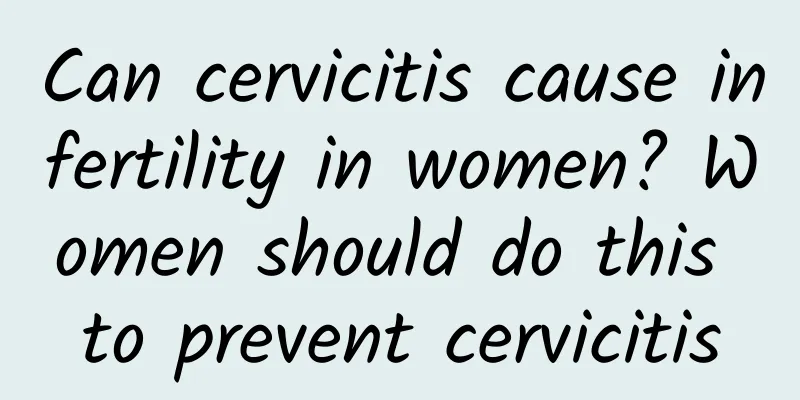How to provide nutritional guidance to prevent functional uterine bleeding in adolescence?

|
Adolescence is a transitional period from childhood to adulthood. It is the period of most vigorous physical, intellectual and psychological development in a person's life. It is a critical period that determines the individual's physical, physical, psychological and intellectual development levels. Adolescents in this period are prone to various problems both physically and psychologically. When the body is affected by mental stress, environmental changes, sudden climate changes, overwork, malnutrition and systemic diseases, it can affect the normal mutual regulation and restriction between the hypothalamus-pituitary-ovarian axis through the neurotransmitters in the cerebral cortex, interfere with the hypothalamus' control of pituitary gonadotropin, cause the follicle-stimulating hormone (FSH) to remain at a low level , and fail to induce the secretion of luteinizing hormone (LH) to reach a peak, resulting in the development of follicles but no ovulation, no corpus luteum formation, and a lack of progesterone in the second half of the menstrual cycle. Therefore, adolescent functional uterine bleeding Most of them are anovulatory functional uterine bleeding. Its prevention can start from nutrition, personal hygiene, mental hygiene and other aspects.Adolescent girls are in a period of vigorous growth and development, and their demand for various nutrients is much higher than that of adults, especially the need for protein and calories has greatly increased, and the need for vitamins and minerals is also more urgent than that of adults. The functions of various nutrients are to form the body, repair tissues, supply calories, supplement consumption and regulate physiological functions. Malnutrition can not only delay the onset of puberty, but also make the physical development and sexual development of adolescents inadequate. Therefore, the problem of nutrition during adolescence is particularly important, and attention should be paid to the supplementation of nutrients such as protein, heat energy, vitamins, minerals, water, and a light diet. Adolescent girls should arrange their diet reasonably, supplement enough heat energy and protein, and reasonably supplement carbohydrates, fats, minerals and vitamins. At the same time, they should cultivate good eating habits, eat three meals on time, eat less snacks, do not be partial or picky, do not be affected by emotions or overdrink, overeat, or not eat, and do not blindly control their diet in order to lose weight. |
<<: How to differentiate metrorrhagia (dysfunctional uterine bleeding) from other diseases?
Recommend
Traditional Chinese Medicine: Acupuncture thread embedding for weight loss combined with diet control
As more and more people pursue beauty, "acup...
Contagious issues with Bartholinitis
Bartholinitis is a common gynecological disease i...
The manifestation characteristics of various types of Bi syndrome after abortion
After an artificial abortion, a woman's body ...
Miracle diet GM weight loss, lose 4 kg in 7 days? Famous weight loss doctors solve 4 blind spots
There are many lazy weight loss methods circulati...
Experts talk about some scientific methods to prevent dysmenorrhea
Many women experience dysmenorrhea, which causes ...
Tips for pelvic inflammatory disease care
The care of pelvic inflammatory disease is an ext...
Can I sign the painless abortion document myself?
Painless abortion is a painless artificial aborti...
How can women prevent cervical erosion? 5 causes of mild cervical erosion
The grading method of cervical erosion is based o...
Does cervical warts have any effect on the fetus?
Rules are necessary to make a circle, but in life...
What are the symptoms of vulvar leukoplakia
Vulvar leukoplakia is very common among gynecolog...
The early symptoms of ectopic pregnancy are obvious pain on one side of the lower abdomen.
Many female friends come to ask: How can we detec...
What is the cause of dysmenorrhea and what should I do?
What is the cause of dysmenorrhea and what should...
What are the clinical manifestations of irregular menstruation?
Irregular menstruation is a common gynecological ...
Can you get pregnant with premature ovarian failure?
Premature ovarian failure refers to the early dec...
Ten "Rainbow New Year Dishes" rich in lutein and anthocyanins, helping the whole family to develop immunity!
The Lunar New Year is coming soon. It would be gr...









